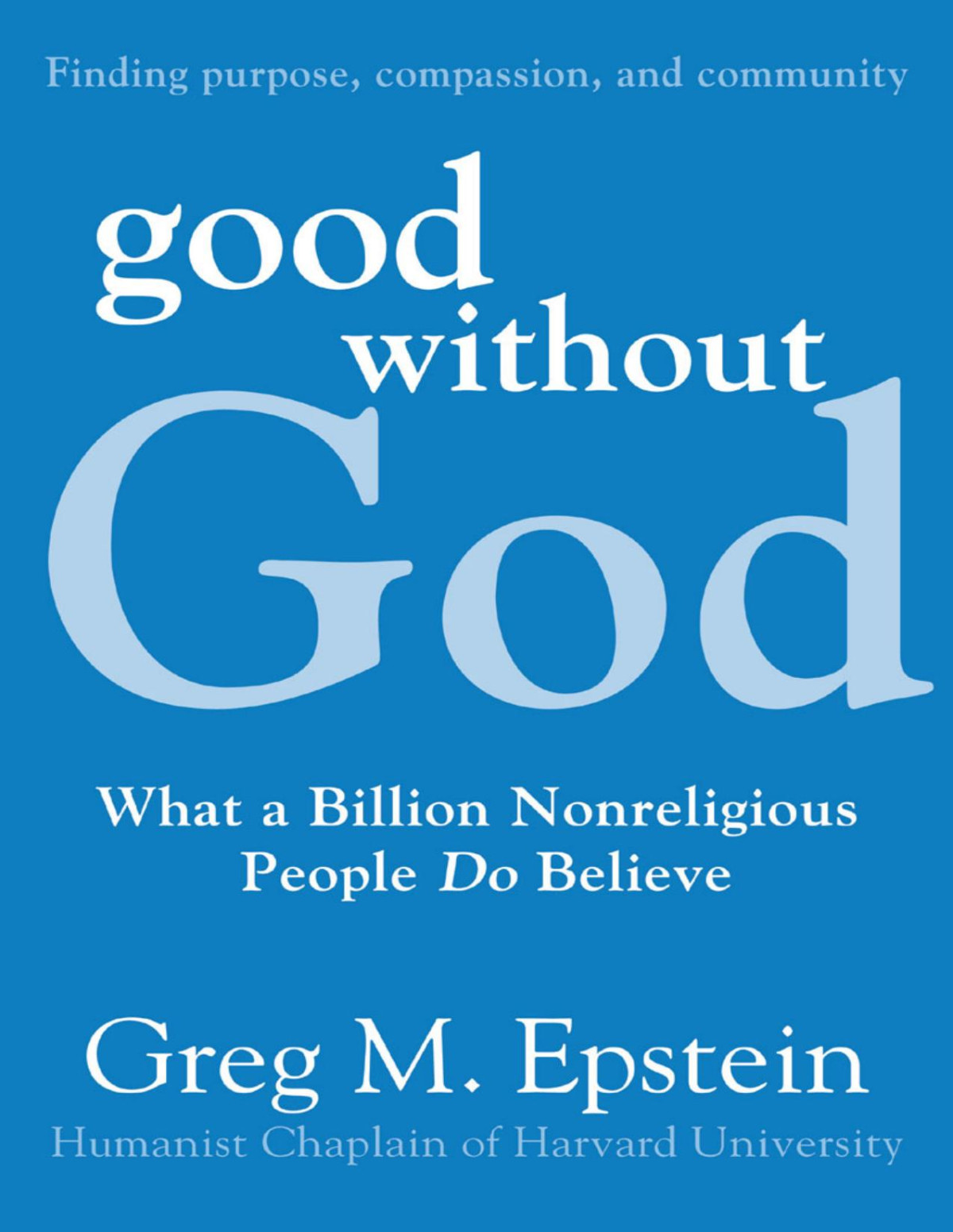

Most ebook files are in PDF format, so you can easily read them using various software such as Foxit Reader or directly on the Google Chrome browser.
Some ebook files are released by publishers in other formats such as .awz, .mobi, .epub, .fb2, etc. You may need to install specific software to read these formats on mobile/PC, such as Calibre.
Please read the tutorial at this link: https://ebookbell.com/faq
We offer FREE conversion to the popular formats you request; however, this may take some time. Therefore, right after payment, please email us, and we will try to provide the service as quickly as possible.
For some exceptional file formats or broken links (if any), please refrain from opening any disputes. Instead, email us first, and we will try to assist within a maximum of 6 hours.
EbookBell Team

4.3
88 reviewsA provocative and positive response to Christopher Hitchens, Sam Harris, Richard Dawkins, and other New Atheists, Good Without God makes a bold claim for what nonbelievers do share and believe. Author Greg Epstein, the Humanist chaplain at Harvard, offers a world view for nonbelievers that dispenses with the hostility and intolerance of religion prevalent in national bestsellers like God is Not Great and The God Delusion. Epstein’s Good Without God provides a constructive, challenging response to these manifestos by getting to the heart of Humanism and its positive belief in tolerance, community, morality, and good without having to rely on the guidance of a higher being.
**
The humanist chaplain at Harvard University offers an updated defense of humanism in response to the belligerent attacks on religion put forward by such new atheists as Richard Dawkins, Sam Harris and Christopher Hitchens. Epstein's approach to religion is respectful, and for the most part, friendly. He sees liberal Christians, Unitarian Universalists, Jews and spiritual self-help gurus, such as Oprah Winfrey, as natural allies of humanists—though at times he seems impatient for them to admit they no longer believe in a transcendent God. A student of Sherwin Wine, the late rabbi and founder of Humanistic Judaism, Epstein's humanism is rooted in his mentor's essentially Jewish formulations. His most impassioned argument is with megachurch pastor Rick Warren and other evangelicals who believe secularism is the enemy and a moral society impossible without a belief in God. While such an argument may be needed, Epstein's book is marred by redundancies and a lack of organization that suggests it was hastily put together. (Nov.)
Copyright © Reed Business Information, a division of Reed Elsevier Inc. All rights reserved.
Harvard’s humanist chaplain believes one can find purpose, compassion, and community without the existence of God. To suggest otherwise, he insists, is a form of prejudice. Yet half of all Americans, according to various polls, say they would never vote for a well-qualified atheist presidential candidate. “No other minority group in this country,” he writes, “is rejected by such large numbers” (approximately 15 percent of Americans—nearly 40 million—are atheists). Defining humanism as, simply, “goodness without God,” Epstein discusses why and how to attain it. Such humanism has, he says, roots in the ancient world and in regions as different as Asia and the Middle East. He traces it from the Epicureans to Spinoza to the Enlightenment and Jefferson’s pursuit-of-happiness doctrine. Humanists don’t deny the significance of God, but rather consider God to be the most influential literary character ever created. Throughout, he persuasively claims that the humanist approach to life can provide the nonreligious with purpose and dignity. A thoughtful account of an often contentious topic. --June Sawyers